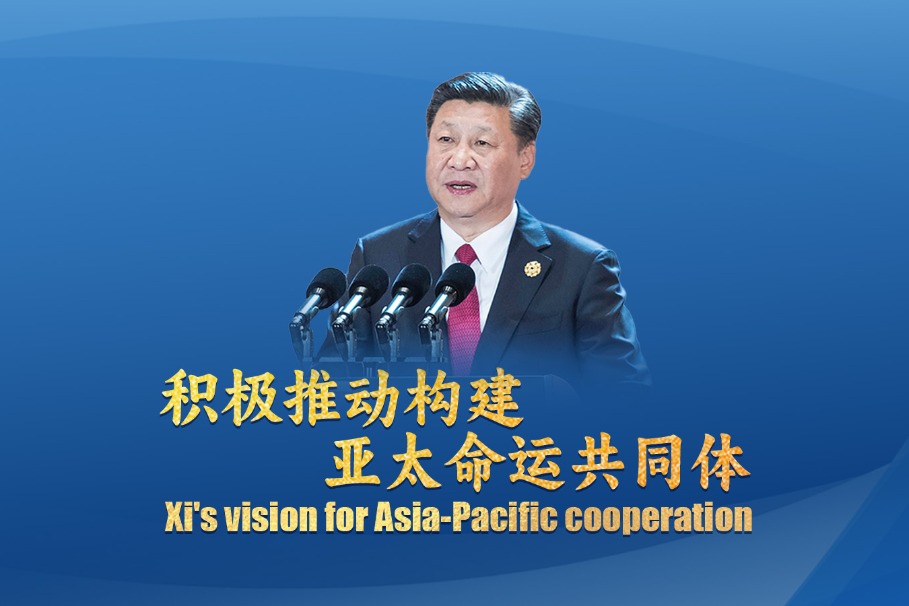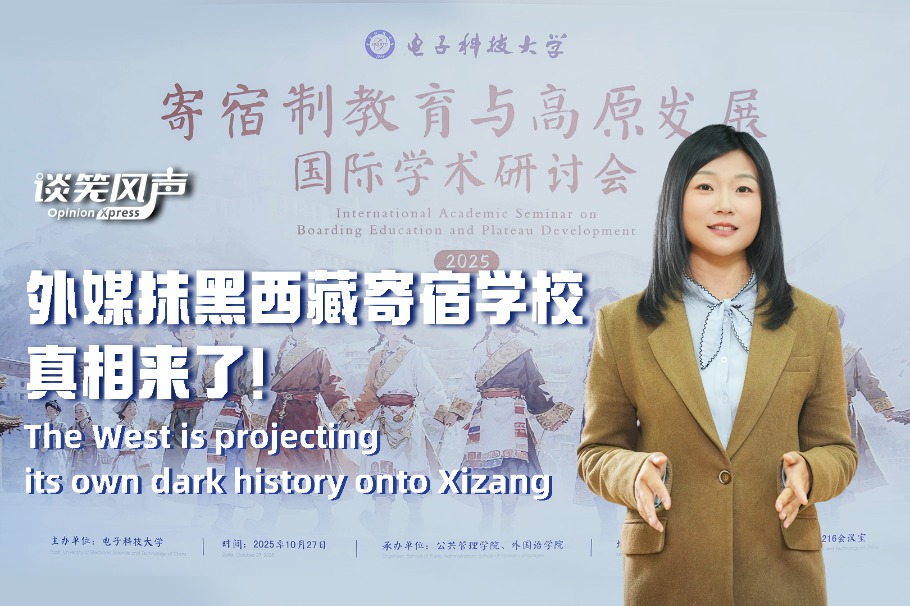Cooperation and coordination key to building Asia-Pacific community with a shared future: China Daily editorial

Chinese President Xi Jinping's attendance at the 32nd APEC Economic Leaders' Meeting in Gyeongju, the Republic of Korea, this week and his state visit to the ROK underscore the great importance China attaches to economic cooperation in the Asia-Pacific and its commitment to openness, mutual benefit and shared development.
As the region's major economic cooperation mechanism, Asia-Pacific Economic Cooperation has, for over three decades, been instrumental in driving trade and investment liberalization, deepening regional integration, and propelling the "Asia-Pacific miracle". In an era marked by geopolitical tensions, economic fragmentation and the resurgence of protectionism, China stands ready to work with all parties to build an Asia-Pacific community with a shared future.
To that end, regional economies need to reject the pursuit of dominance and hegemony to ensure that globalization becomes more inclusive and sustainable. In the process, they should promote innovation as the driving force of sustainable growth, deepen reform of international economic governance, adopt a people-centered approach to address development imbalances and make concerted efforts to foster common progress and peace.
APEC is not merely a platform for dialogue, but a key mechanism for action. As the Asia-Pacific region faces rising uncertainties, the question is not whether regional economies will continue to integrate, but how they can do so in a more equitable and sustainable way. The APEC economies should realize that openness brings progress, while closing the door will mean being left behind.
"A good neighbor is not to be traded for gold," Xi once remarked, using this proverb to characterize China's relations with neighboring countries such as the ROK. The Sino-ROK cooperation has flourished across trade, technology and culture in recent years. In 2024, bilateral trade reached $328.08 billion, with China remaining the ROK's largest trading partner for the 21st consecutive year, while the ROK regained its position as China's second-largest trading partner.
So Xi's state visit to the ROK is of particular significance as it is expected to inject new vitality into the China-ROK strategic cooperative partnership and expand practical cooperation in emerging sectors such as green technology, digital industries and service sectors.
A healthy and stable Sino-ROK relationship will not only bring benefits to their peoples but also provide momentum for regional and global economic recovery.
It has been suggested that the 21st century is the Asia-Pacific century. Home to one-third of humanity, over 60 percent of the global GDP, and nearly half of global trade, this region remains the most dynamic. But to maintain this, the spirit of cooperation that has underpinned decades of shared progress must be preserved.
The backdrop to the APEC meeting is a sobering economic forecast from the International Monetary Fund, predicting a slowdown in the region's growth from 4.5 percent this year to 4.1 percent in 2026. This projection underscores the urgent need for cooperation and innovation to sustain growth and stability.
China's fulfillment of its obligations under the Regional Comprehensive Economic Partnership and the recent signing of the China-ASEAN Free Trade Area 3.0 protocol are testaments to the country's willingness to foster economic integration across the Asia-Pacific. By facilitating smoother trade flows and encouraging investment, these initiatives aim to create a more resilient and interconnected regional economy.
China continues to be the most powerful engine of global growth, contributing about one-third of total world growth in recent years. Its average annual growth rate of 5.5 percent between 2021 and 2024 has far exceeded the global average, underpinned by structural reforms, technological innovation and a steadfast commitment to green development.
Notably, the Recommendations of the Central Committee of the Communist Party of China for Formulating the 15th Five-Year Plan for National Economic and Social Development were made public on Tuesday. The course being charted will create not only impetus for China's development over the next five years, but also more opportunities for regional development that align with the "open, dynamic, resilient and peaceful Asia-Pacific community" for which APEC's Putrajaya Vision 2040 has outlined a road map.
The anticipated meetings between Xi and other APEC leaders, including one with US President Donald Trump on Thursday, which the Chinese Foreign Ministry confirmed on Wednesday, are expected to pave the way for a more coordinated response to the challenges of the times.
By championing openness, innovation and shared development, China stands ready to work with all parties to inject fresh momentum into regional prosperity and to jointly build an Asia-Pacific community with a shared future.

































